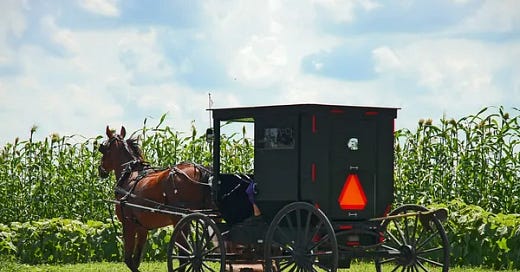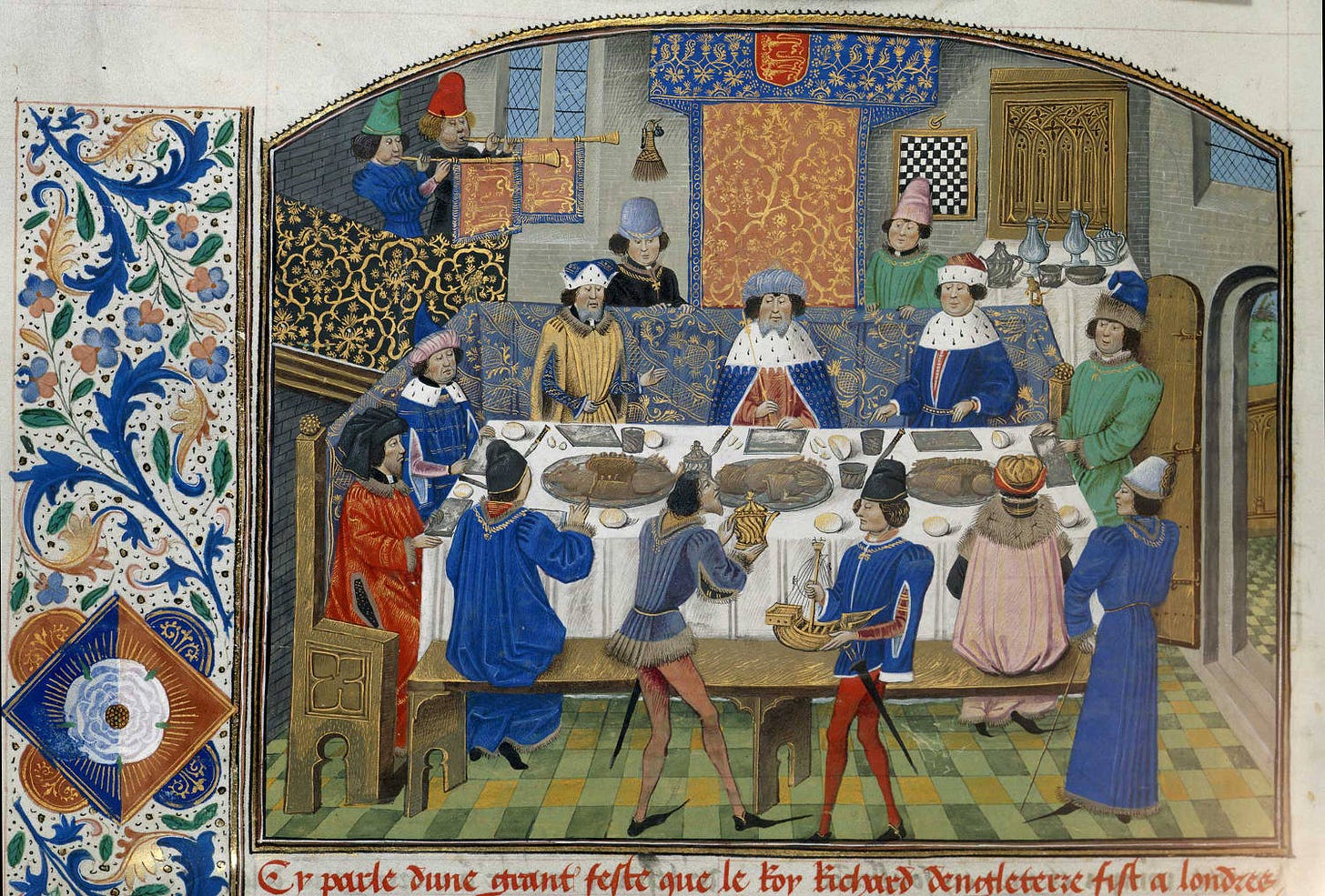Traditional Christmas, the Amish and Modern Culture
Can the Medieval Church show us how to relate to society today?
"Whatever happened to the 'Twelve Days of Christmas' tradition?," ask my Episcopalian siblings, "and the pre-Christmas season is Advent, not Christmas!"
Episcopalians and most liturgical denominations follow the liturgical "Church Calendar," which means the Christmas season starts on December 25. Therefore, today is the 11th day of Christmas and tomorrow will make the twelvth! Friday, January 6th, will be Epiphany, the day honoring the arrival of the wise men to see the Baby Jesus and the start of a new liturgical season which lasts until Lent.
My siblings have a reasonable point. Christmas has for centuries been a Christian holiday, with Christian traditions, so the Christian Church "should" get to be the authorities on Christmas, right? However, the whole decision to observe Christmas on December 25th was decided centuries ago by church leaders wanting to incorporate the current culture of many new Christians.
The religions of ancient Rome and surrounding regions observed holidays around the new winter solstice. It is said that Sextus Julius Africanus, in the year 221, chose December 25 as the birthday of Jesus in an effort to adopt and absorb the traditions celebrating the birth of Mithra, the Roman sun god on December 25. The two week Saturnalia festival, which honored the agricultural god, Saturn, became Advent. From my readings, it is not totally certain which church leader actually decided to set Christmas on December 25, but it is factual that people previously celebrated a pagan god on that date.
Another example of pagan traditions being adopted by the Christian Church is the celebration of Yule tide, with the burning of the Yule log. Yule began as an early winter solstice ritual of Germanic or Scandinavian paganism. It is thought that the huge log was kept burning for close to 12 days. Other pagan traditions adapted by the Church into the celebration of Christmas include decorating evergreen trees in homes and other uses of evergreen, such as mistletoe, as well as several other pagan traditions.
Looking at this long history of the Christian Church adapting then current cultural traditions to the Christian faith, Christians who follow the current cultural preference of celebrating Christmas before the actual date and who ignore the traditional church calendar might be following the spirit of the early Christians more than the liturgical Christians who stick to the old traditions. Of course, that is fine, if you find meaning and enjoyment in these traditions!
Now admittedly, the issue of how churches and Christians celebrate the birth of Jesus is not a serious theological or moral issue. However, over the years there have been seriously debated issues regarding how much Christians should partake of the secular culture in general. It's been an issue for Protestants as well as Catholics and still can raise much discussion.
The Amish people, for instance, have been dedicated to maintaining a separatist culture as part of their faith for over five centuries, if you count their time as part of the Mennonites, before they split off. The Mennonites originated in the early 1500s in The Netherlands and Switzerland, as an Anabaptist faith. Both groups have historically stressed strict separation from secular culture. Today, the strictness varies from community to community, depending on the bishops, but a large number of Amish still live very separate lives from modern society.
Most modern Christians have little problem with participating in secular culture as well as incorporating secular influences in worship styles. Some leaders still bemoan the secular influence, but on the positive side, churches that incorporate current cultural styles in music and worship are growing in number. As an example, one local church I know encourages, with good response, a fasting period close to the beginning of the year, instead of at Lent. This church realizes people tend to be introspective and thus more inclined to fast soon after New Year's Day, an important date in the current culture.
In my opinion, it's wise to relate one's faith to what is going on with the secular world in areas of culture as long as Christian teachings are upheld. Besides music, Christians often also speak through theater, literature and other arts using current cultural methods. Our two sons and some of their family members are involved in theater, both Christian and secular, with the goal of stimulating thought toward spiritual ideas. My oldest son and his wife incorporate as a motto, the statement by the Apostle Paul, "I have become all things to all people that by all means I might save some."* To them using modern culture is part of becoming "all things to all people" to bring them closer to God.
*1 Corinthians 9:22b





Nancy, that's an excellent point! Christmas has become a very secular holiday in much of society. Next fall I hope to write an article addressing that.
Twelve days *before* Christmas? That would make sense to me if those days were marked by introspection and repentance. Instead, they've become characterized by a bacchanalia of materialism and greed, many actually going into serious debt to keep up with the expectations of family and friends. In my view, the commercial world cleverly grabbed the idea of "Twelve Days" to push a greater intensity of buying, buying, buying. Celebrating "Twelve Days" after Christmas Day itself means the incentive to shop is suddenly minimized, and the birth of Jesus and the mystery of the Incarnation can be truly celebrated.